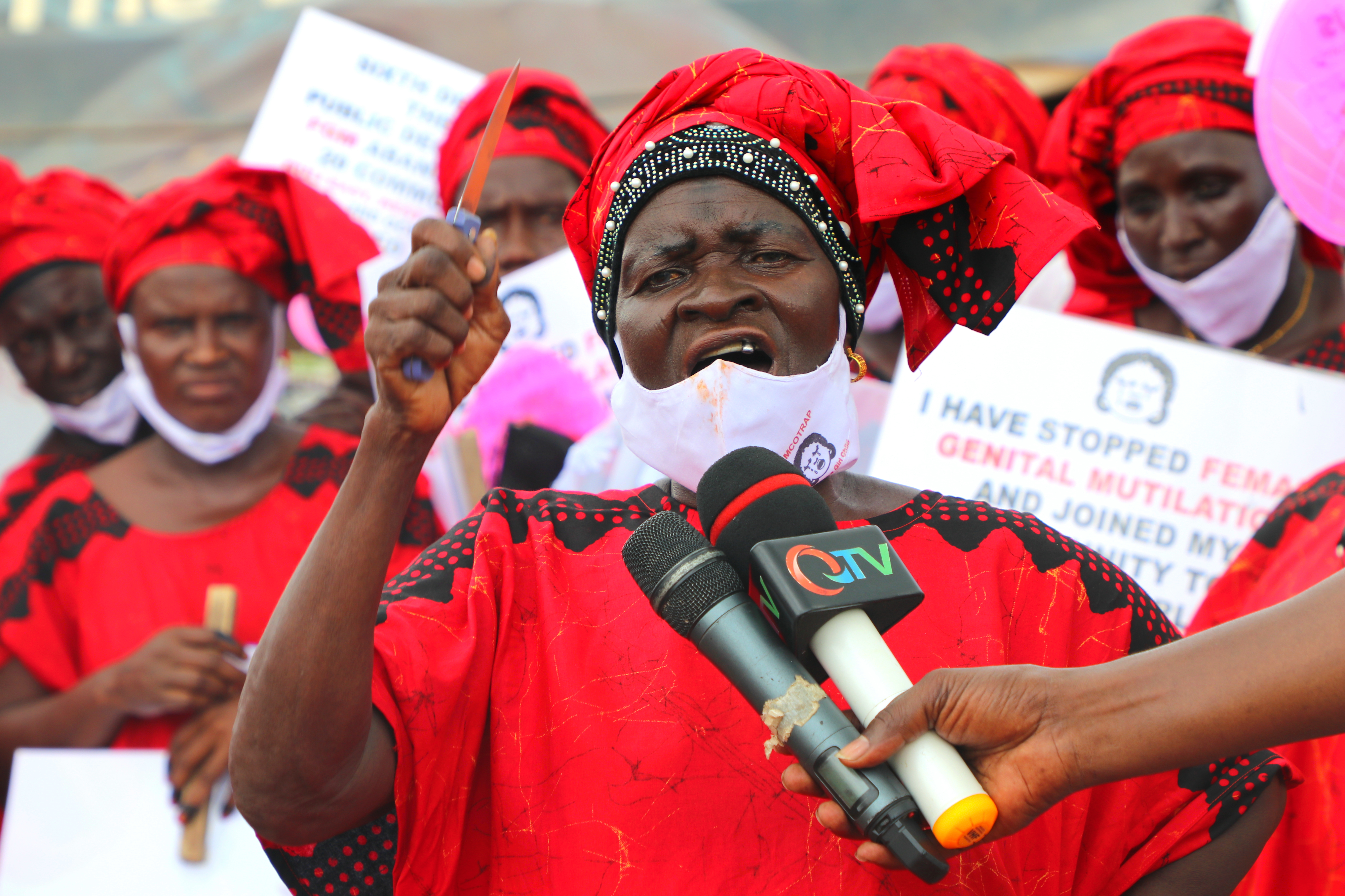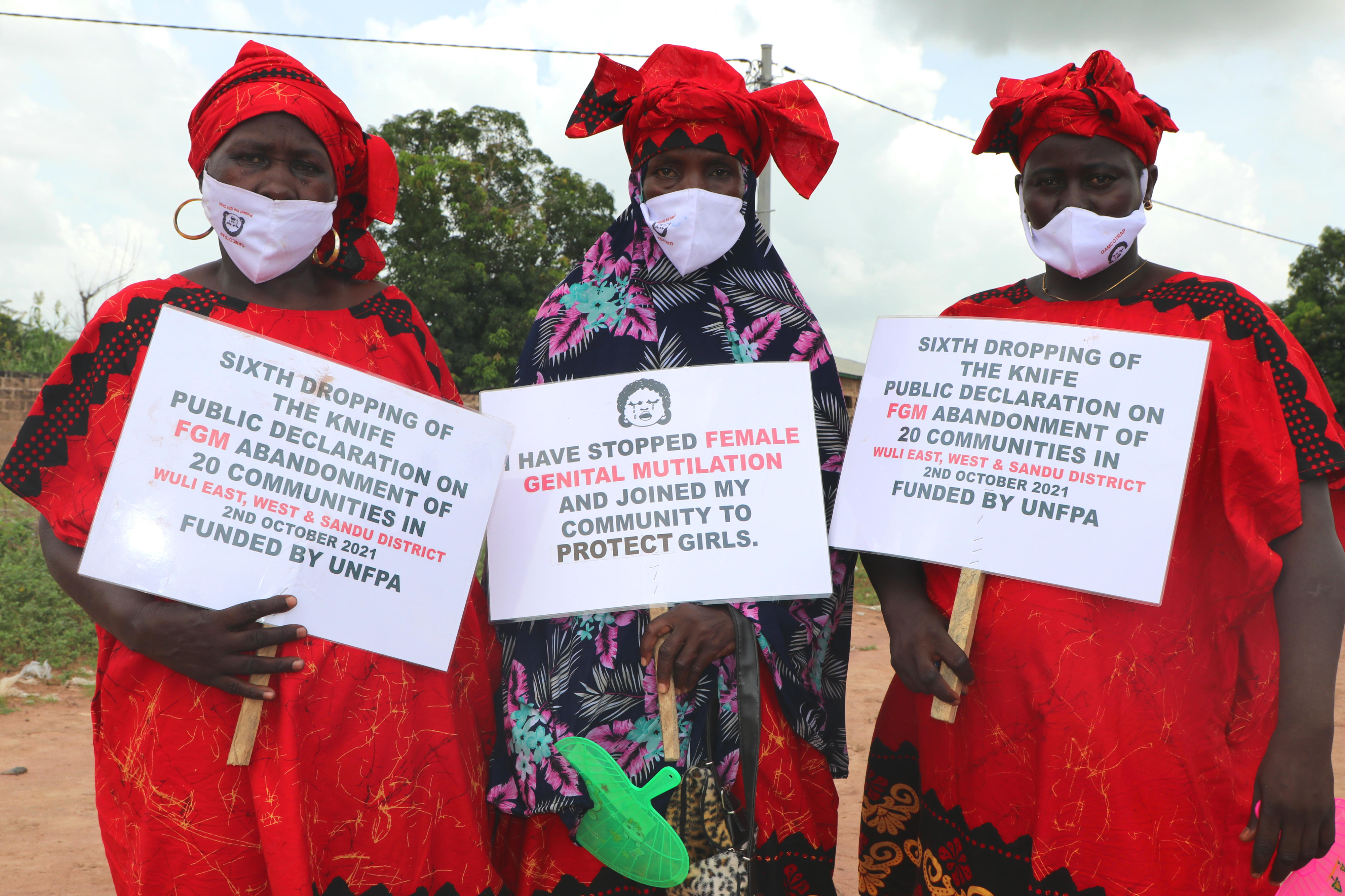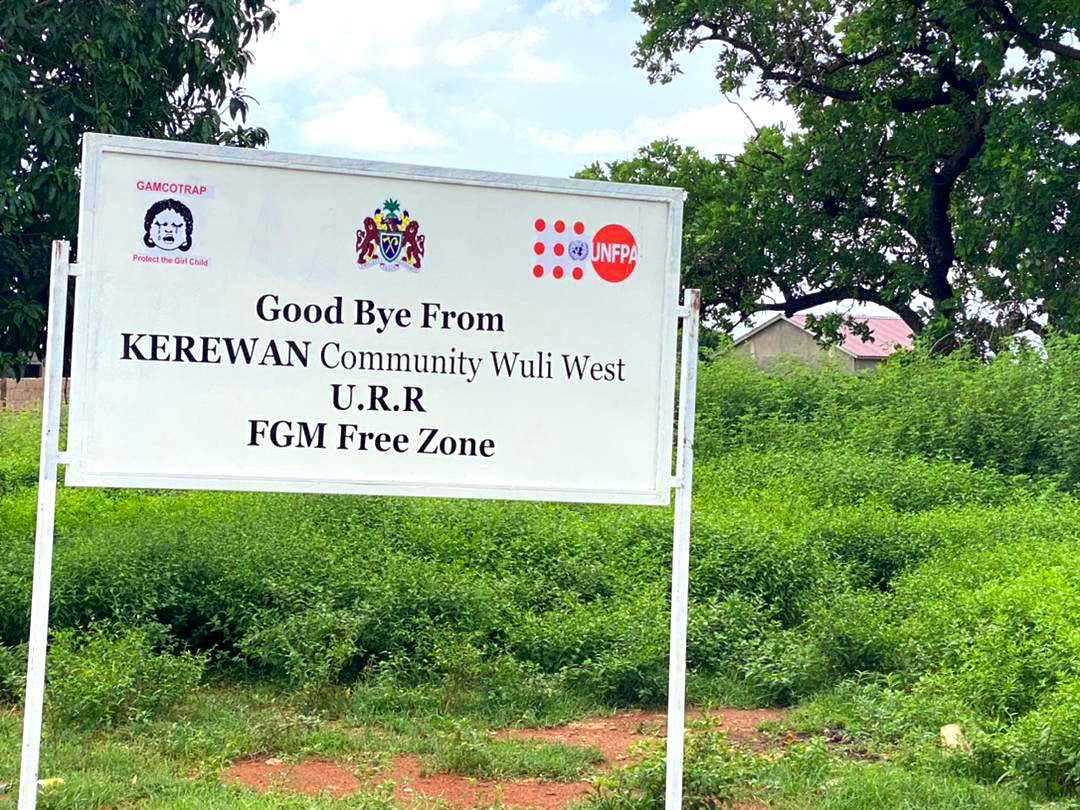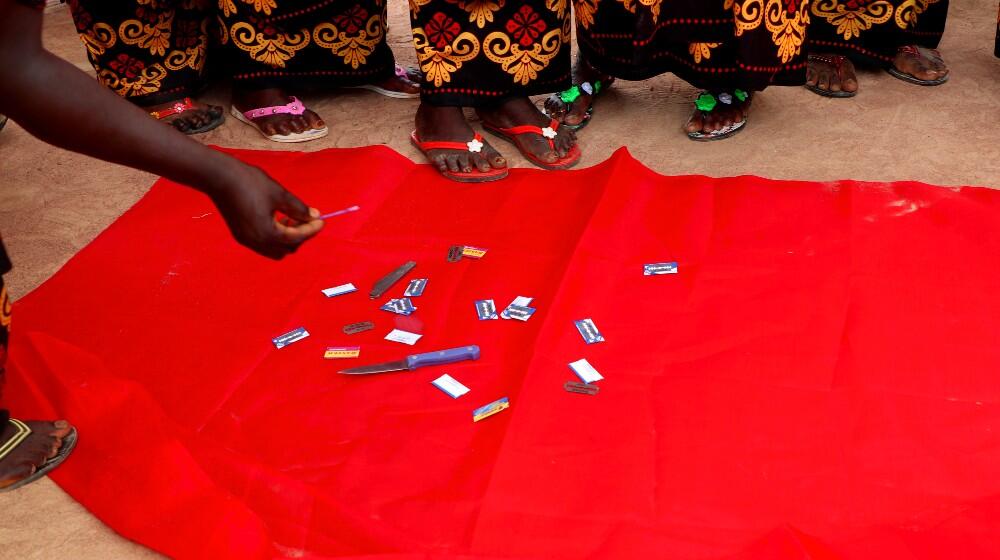Harmful practices which undermine the health, dignity and bodily integrity of women and girls are often fueled by deep-seated gender inequalities in the communities they are practiced. In The Gambia, Female Genital Mutilation (FGM) is a highly prevalent and deeply-rooted culture. FGM is internationally recognised as a human rights violation and has severe immediate and long term consequences on the sexual and reproductive health of those subjected to the practice. According to the Gambia 2019-2020 Demographic and Health Survey (DHS) 73% of women aged 15-49 years in the country have been subjected to FGM and 65% of these were cut before their fifth birthday. Despite the high prevalence rate in the country, 46% of women who have heard about the practice believe that it needs to stop. While this harmful practice impedes the health and wellbeing of women and girls in The Gambia just like in other parts of the world where it is practiced, efforts to end FGM require a coordinated and systematic approach through which entire communities are engaged from a human rights and gender equality stand point.
UNFPA has been working with government and grassroots partners in The Gambia to accelerate the abandonment of FGM by championing community-driven action, advocating for the promulgation and implementation of laws and formulation of policies to create an enabling environment for end FGM actors, supporting data collection and analyses to provide an understanding of FGM prevalence trends as well as to inform programming, among others. Through these partnerships, the agency has been supporting the Gambia Committee on Traditional Practices Affecting the Health of Women and Children (GAMCOTRAP) to work with communities particularly those often left behind to encourage the eradication of FGM and other harmful cultural practices. Key among the strategies used by GAMCOTRAP through UNFPA’s support is the ‘dropping of the knife’ initiative, an effort that engages circumcisers and custodians of FGM in their families and communities to enhance their understanding of the negative implications of the practice thus influencing voluntary abandonment. Since the start of the initiative, over 1000 circumcisers in communities across the country have dropped their knives and are now championing community efforts to accelerate the eradication of FGM in The Gambia.

On Saturday 2 October 2021, GAMCOTRAP with support from UNFPA held the 6th dropping of the knife ceremony for 27 circumcisers from 25 communities within the Wuli East, Wuli West and Sandu districts of the Upper River Region. The ceremony held in Taibatou, a community about 386 kilometers from Banjul brought together the Governors of the Upper River, Lower River and North Bank Regions, district chiefs, traditional and religious leaders as well as community members.
Sarjo Trawally of Bajaha Kunda, Tai Jambang of Samba Gawdo and Satang Touray of Bantunding are part of the 27 ex-circumcisers who took the oath to stop practicing FGM and ensure that women and girls in their communities live in health and dignity and are protected from harmful practices. The three women have each carried on with the tradition which they inherited from the matriarchs in their families and communities. However, through their engagement in GAMCOTRAP’s community activities to promote the health and wellbeing of women and girls and eradicate FGM, they voluntarily opted to stop the practice.

According to Sarjo Touray, the practice of FGM was seen as a rite of passage for girls in her village and served as a means of ensuring purity. Before engaging in activities that influenced her change of perception and decision to stop conducting FGM on girls in her community, Sarjo believed that practicing FGM was a way of empowering girls and protecting their wellbeing. Today, she knows better and has made the informed decision to say no to the practice. “I did not know that through upholding this tradition I was contributing towards holding women and girls back and promoting their suffering” she added.
In many communities where FGM is practiced in The Gambia, it is done from a place of care and love for their girls and as a symbol of what is believed to be their initiation into womanhood. However, with the availability of expert information and evidence today on the numerous negative consequences of the practice on women and girls who have undergone it, it is time that we support women and their communities to take a stance against FGM.
Aside from upholding this practice as a deep-seated cultural practice, FGM also provides a source of income and livelihoods for circumcisers as parents of the girls they conduct the practice on provide them with compensation for their time and role in upholding this tradition. This makes FGM an interesting practice to eradicate as it requires a multi-prong approach to address the different aspects of the practice and how they affect its custodians. As such, the 'Dropping of the Knife' initiative is part of a larger investment to empower ex-circumcisers to lead efforts to address Gender-Based Violence and harmful practices in their communities and support them through economic empowerment efforts in order to create an alternative source of income for them.

In order to demonstrate solidarity with women and girls in their communities, the chiefs of the Wuli East, Wuli West and Sandu Districts used Saturday's 'Dropping of the Knife' ceremony to publicly declare their communities FGM free zones and pledge to champion the promotion of women’s health and wellbeing. This symbolic declaration by the traditional leaders is vital in showing community commitment and promoting the complete abandonment of FGM.
Through the support to the 'Dropping of the Knife' initiative and other community driven action to end FGM, UNFPA is committed to working with civil society organisations in addition to its collaboration with the Government of The Gambia to ensure rights and choices for all women and girls in The Gambia.
Media contact:
Haddy Jonga – Programme Analyst Communications, UNFPA The Gambia jonga@unfpa.org
Faith C. Ememodo – UNV Communications Associate, UNFPA The Gambia ememodo@unfpa.org


